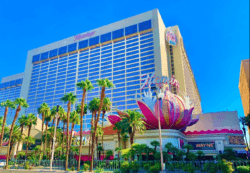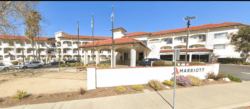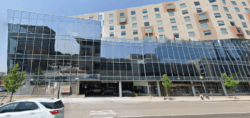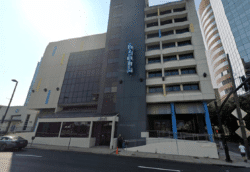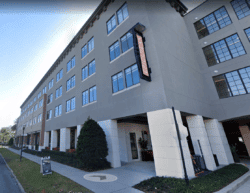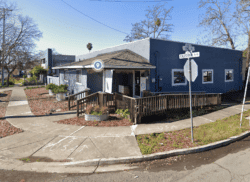MASTERING
BIODYNAMICS
EXPLORING THE FUTURE OF VITICULTURE
Enjoy this Biodynamic Winemaking Video
NAPA VALLEY WINE ACADEMY BIODYNAMICS SUMMIT
LIVE VIRTUAL CONFERENCE

Biodynamics as a modern form of viticulture
Virtual summit from and with Dr. Georg Meissner and Romana Echensperger MW
Special guests: Rodrigo Soto, Clemens Lageder, Ludwig Knoll and Gernot Heinrich
How would you like to sit down with some of the world’s leading biodynamic practitioners?
Using a next-generation virtual conferencing platform, we’re inviting 50 participants to join our first summit on biodynamic wine — which includes lectures, live Q&As and tastings as well as breakout sessions for intimate interaction with both attendees and presenters.
Some of the most famous wine regions in the world such as Burgundy and Alsace are converting to biodynamics.
Yet it’s barely covered in wine education — even in the highest levels of certifications. Become a more credible wine professional by debunking the myths on biodynamics and understanding its role in modern viticulture.
What are the Key Points in Biodynamic Winemaking
1. Introduction to Biodynamic Winemaking
Biodynamic winemaking is an approach to viticulture that extends beyond organic practices, integrating ecological, ethical, and spiritual aspects. This holistic approach is increasingly gaining traction in the winemaking world.
2. The Philosophy Behind Biodynamic Winemaking
2.1 Historical Background
The concept of biodynamics was introduced by Rudolf Steiner in the early 20th century, merging ancient agricultural wisdom with a new spiritual understanding of nature.
2.2 Core Principles of Biodynamics
Central to biodynamics are harmony with nature, self-sustainability, and a closed-loop ecosystem approach. It’s not just about avoiding chemicals but enhancing the vitality of the vineyard.
3. Key Practices in Biodynamic Winemaking
3.1 Soil Health and Biodiversity
Healthy soil is the foundation. Practices such as composting and cover cropping are essential for maintaining soil vitality and biodiversity.
3.2 Use of Biodynamic Preparations
Unique biodynamic preparations, often made from fermented manure, herbs, and minerals, are used to stimulate soil health and plant growth.
3.3 Lunar and Cosmic Rhythms
Biodynamic winemaking aligns agricultural activities with lunar and cosmic cycles, believing these rhythms affect plant growth and vitality.
3.4 Animal Integration
Animals play a crucial role in biodynamic farms, contributing to the ecosystem’s balance through grazing, manure, and more.
4. The Impact on Wine Quality
4.1 Taste Profile Differences
Many claim biodynamic wines have a more authentic, terroir-driven taste, reflecting their unique environment.
4.2 Environmental Impact
Biodynamic practices promote environmental sustainability, reducing carbon footprint and preserving biodiversity.
5. The Global Perspective
5.1 Adoption and Growth Worldwide
Biodynamic winemaking is gaining momentum globally, with vineyards in various regions adopting these practices.
5.2 Challenges and Criticisms
Despite its growth, biodynamic winemaking faces skepticism and challenges, particularly regarding the scientific validity of some practices.
6. Conclusion
Biodynamic winemaking is more than a method; it’s a philosophy. It represents a commitment to environmental stewardship and producing wines that truly reflect their origins.
*Unfortunately, we cannot ship wine kits to AL, IL, KY, MI, MS, NH, ND, UT, VA and VT or outside of the USA.
SCHEDULE OF EVENTS
Each day includes 2 hours of seminars and discussion
June 5 – Introduction
The state of biodynamics
around the globe
Seminar by Dr. Georg Meissner on the principles of biodynamics and his personal experience converting vineyards
Seminar by Romana Echensperger, MW on the state of biodynamics worldwide and the incentives of a new generation of wine growers

Tasting and discussion with Rodrigo Soto on his personal experience and how he translates the work of biodynamic founder Rudolph Steiner
June 10 — Man and Measure
The human’s role in biodynamics
Seminar by Dr. Georg Meissner on the role of humans in biodynamics and the concept of salutogenese (the factors that support well-being rather than cause disease)
Seminar by Romana Echensperger, MW on a short history of the practice and the difference between organic and biodynamic

Tasting and discussion with Clemens Lageder on converting his vineyards as well as his 80 winemaking partners
June 17 – Sense and Nonsense
Understanding the prep work and cosmic rhythms
Seminar by Dr. Georg Meissner on the thoughts behind biodynamic preparations and consideration of cosmic rhythms
Seminar by Romana Echensperger, MW on what biodynamic means for the wine cellar, quality and style

Tasting and discussion with Ludwig Knoll on how biodynamics converted a long-overlooked and misunderstood grape, Silvaner into outstanding wine
June 24 – Getting granular
Biodynamic’s concept of terroir
Seminar by Dr. Georg Meissner on Steiner’s call for explicit understanding of different rocks and the biodynamic view on terroir
Seminar by Romana Echensperger, MW on what biodynamics offers to gastronomy and trade

Tasting and discussion with Gernot Heinrich on limestone and silicat (two important terroir factors in his alpine vineyards) and how he lets the soil speak for itself
THE PRESENTERS
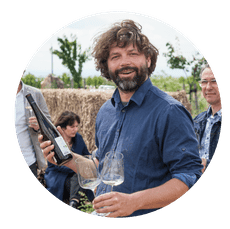
Dr. Georg Meissner
Leading biodynamic farming and winegrowing consultant
- Former head of production for Alois Lageder’s extensive winegrowing operations in Alto Adige, Italy
- Researcher in the Department of Viticulture at the Geisenheim Institute of Applied Sciences in Rheingau, Germany
- Earned degrees in technical viticulture and oenology in Montpellier, France
Having studied the differences between conventional, organic and biodynamic on three parcels of Riesling vines since 2006, Georg has sought to scientifically verify the benefits of biodynamics on the overall quality of soil, plant and wine. His interest in organic and biodynamic grape growing have taken him around the world.
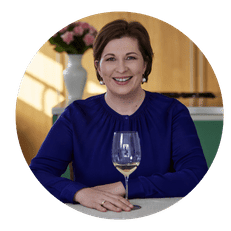
Romana Echensperger, MW
Master of Wine since 2015
- Head sommelier in top restaurants across Germany and Spain
- Author of a comprehensive book highlighting the biodynamic wine scene in German-speaking countries
- Wine writer, educator, consultant
Romana has worked intensively on the subject of biodynamics for years. Passionately committed to bringing biodynamics to a wider audience, she helped spearhead this Summit Series after the raving success of a similar event she coordinated for German audiences.
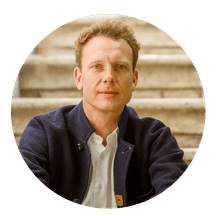
Clemens Lageder
CEO of Alois Lageder in Alto Adige, Italy
- Sixth generation to be involved in the family vineyard, founded in 1823
- Pursued his wine education in Geisenheim (Germany), USA and France
- Earned an Executive Master for Family Entrepreneurship at the Zeppelin University in Germany
Before joining his family winery in 2015, Clemens worked with Oikopolis-Group in Luxemburg, a corporation for the commercialization of organic and biodynamic aliments. The winery has been committed to biodynamics since 2004, and Clemens seeks to continually expand his knowledge in this sector.
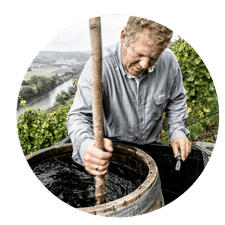
Ludwig Knoll
Owner of Weingut am Stein, a beacon winery in Franconia and Germany
- Produce top wines from the legendary Stettener Stein vineyard, among others
- Practicing organic cultivation since 2006 and biodynamic cultivation since 2008
- Federal Award for Organic Farming 2018.
- 5th generation in the winery, since 1890
- Study Geisenheim
- Silvaner Specialist & VDP
Ludwig, together with his wife Sandra, is deeply committed to maintaining the character of the terroir and bringing out the typicality of the site even more clearly through biodynamics. Their landmark winery features a kitchen house, on-site Michelin star restaurant and a “Weinwerk” tasting room that has won architectural awards for its unique construction.
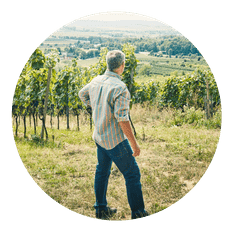
Gernot Heinrich
Owner of Weingut Heinrich winery
- Known for autochthonous grape varieties including Blaufränkisch
- Practicing biodynamics since 2006
Since 1990, Gernot and his wife Heike have carved out a name for their Austrian winery through careful and thoughtful cellar work, manual labor and craftsmanship. Their ultimate goal is for their wines to tell of their origins on the cool limestone slopes in the alpine region of Austria.
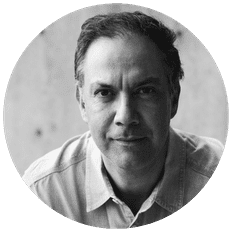
Rodrigo Soto
Estate Director of Quintessa Winery
- Established minimal-intervention winemaking philosophy for Benziger in the Russian River Valley
- Twenty-plus years experience in biodynamics
- Has become one of the most respected Chilean winemakers, transforming South American vineyards to sustainable operations through biodynamics
Rodrigo has been involved in the food and wine industry nearly all his life. After studying agronomy in university and writing his thesis on organic farming, he has dedicated his career to establishing sustainable, organic and biodynamic operations throughout his native Chile and California.
REASONS TO ATTEND
- You want to understand the difference between organic and biodynamic agriculture
- You are interested in biodynamics but you have not found sound information in a modern understanding and a convincing practical reference.
- You want to get in-depth background knowledge beyond the oft-cited cow-horn and moon phases.
- You want to get a deeper understanding of this global trend and what this means for wine quality and wine style.
- You want to understand the role and importance of certification boards and different guidelines.
- You would like to have biodynamics explained from three perspectives, namely from the university and consulting context, from the marketing and journalistic point of view and from the practitioner’s side.
WHAT'S INCLUDED
Included in this 4-part virtual summit, you will receive:
- Presentations from leading experts Dr. Georg Meissner and Romana Echensperger MW
- Tastings and discussions with renowned biodynamic winemakers Rodrigo Soto, Clemens Lageder, Ludwig Knoll and Gernot Heinrich
- Intimate interactions through our next-gen virtual conferencing platform and small audience
A 6-bottle (60 ml) wine tasting kit with prized biodynamic wines,selected specifically for this virtual summit.- A multi-layered perspective from the university and consulting context, the marketing and journalistic point of view, and the practitioner’s side
- Full access to recordings of the virtual summit series forever!
*Unfortunately, we cannot ship wine kits to AL, IL, KY, MI, MS, NH, ND, UT, VA and VT or outside of the USA.
Co-Sponsored by:
TRINK MAGAZINE
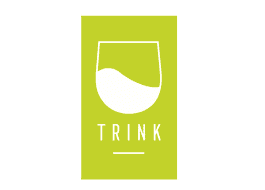
TRINK is the world’s first and only English-language digital magazine dedicated to “German-speaking” wines, i.e., those of Austria, Germany, German-speaking Switzerland, and South Tyrol. We believe top-quality journalism and engaging narrative are essential for deepening understanding of these underexplored wine regions. Our contributors are experts in their fields and bring a wealth of on-the-ground expertise and context to put our readers’ fingers on the pulse of these extraordinarily dynamic wine regions.
We are delighted to offer a 25% discount off our premium (“GG”) Patreon subscription tier to students with proof of enrollment in Mastering Biodynamics Virtual Summit. This includes access to all TRINK magazine content, including the TRINK Insider newsletter with exclusive previews, interviews, and wine recommendations, master classes, and more.




